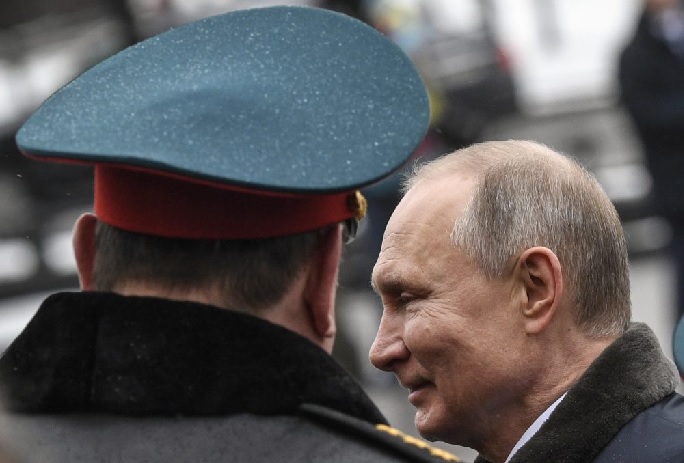
The Wagner Group is a Russian private military company (PMC) created in 2014 by Yevgeny Prigozhin, an oligarch with close ties to Vladimir Putin. Prigozhin, also known as Putin’s chef because of a lucrative catering business that satiated Putin’s tastes, has long served as a Russian proxy to help Moscow achieve its national security objectives. Prigozhin was indicted by the U.S. Department of Justice for his role in running a so-called troll factory on behalf of the Russian Federation’s Internet Research Agency (IRA).
Prigozhin’s efforts were designed to influence the 2018 U.S. mid-term elections and, for that, he was also sanctioned by the U.S. Department of the Treasury pursuant to Executive Order 13848 (an order that imposes penalties for interfering in a U.S. election). Prior to that, Prigozhin had been sanctioned for his role in the Russian war in Ukraine. Just as Prigozhin’s history is laden with subterfuge, so too are the activities of the Wagner Group.
The Wagner Group’s effectiveness has been uneven as it has deployed its fighting force, estimated to be anywhere from 1,000 to 5,000 personnel in size. Mercenaries associated with Wagner have gravitated to several countries, including at least a handful where either terrorist groups, weak governance structures, or ongoing conflict (or a combination of all three) are present, including Ukraine, Libya, Mozambique,Sudan, Zimbabwe, and Venezuela. It is also present in the Central African Republic (CAR) and South Africa. The Wagner Group has successfully diversified its funding streasm and while partially bankrolled by Prigozhin’s close ties to the Kremlin, the group has also received foreign sources of funding. For example, for its work in CAR, Wagner was partially paid in gold and diamonds. Payment like this is ideal for an organization interested in concealing its finances. Precious gems are portable, evade scrutiny of the formal financial system, and are easily laundered. Similarly, it has been reported that the Wagner Group was paid in natural resources, specifically oil and gas, for its work in Syria. Being paid in commodities and precious gems is important since the Wagner Group is subject to U.S. Treasury Department sanctions pursuant to E.O. 13660 (a sanction regime focused on illegal activities in Ukraine). The Wagner Group’s motivations are mix of pecuniary and nationalistic. However, the motivations of its military leader, Dmitriy Utkin, are likely more complex. Utkin is a former member of Russian special forces and is also, reportedly, infatuated with Adolph Hitler and Nazi ideology. Utkin was also sanctioned by the Treasury Department in 2017 under E.O. 13660. He is said to have named the group after his favorite composer, Richard Wagner.
The Wagner Group’s sanctioning stems from its activities in Ukraine where it fought alongside an amalgamation of Russian military forces, Ukrainian separatists, and white supremacists. Ukraine is where the Wagner Group gained critical battlefield experience by supporting Russia’s annexation of Crimea in 2014. Later, the Wagner Group’s combat activities in Ukraine would become more direct in Lukansk and Donetsk. The Wagner Group also went on to expand its operations in Syria where it would serve as a fighting force for Russian interests. Unlike U.S. private military contracting entities like DynCorp and Blackwater (now named the Academi) that generally protect U.S. government personnel and facilities, the Wagner Group directly engages in combat. In Syria, the group is best known for being routed by U.S. forces in a February 2018 firefight near a Conoco gas plant located near Deir al-Zour. Despite the setback, the Wagner Group’s decision to instigate a fight reflected the group’s mission – preserve oil and gas access for the Assad Regime.
The Wagner Group’s mission has expanded to other hotspots, notably in Africa. In 2018, the Wagner Group emerged in the CAR, a resource-rich, but highly unstable country, where the organization has supported President Faustin-Archange Touadera. The full scope of the Wagner Group’s activities in the CAR remain opaque. Further north, in Libya, the Wagner Group has been instrumental in positioning the Russian Federation to influence the outcome of the civil war. Specifically, the Wagner Group has inserted mercenaries into Khalifa Haftar’s Libyan National Army to serve as a force multiplier for the warlord. This has resulted in a strengthening of Haftar’s hand and likely additional Russian leverage in Libya’s endgame, which is closely tied to access to energy reserves. The Wagner Group’s recent successes clearly benefit Russia and portend additional deployments, especially to parts of the world Moscow considers geopolitically important, whether based on geography or access to resources. As the United States continues to reduce its military presence around the world, Russia will use the Wagner Group as one of several entities to expand its influence and opportunistically exploit power vacuums from Latin America to the Middle East.
 Eurasia Press & News
Eurasia Press & News



